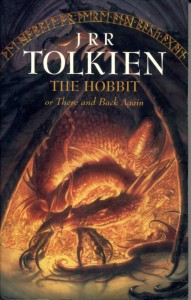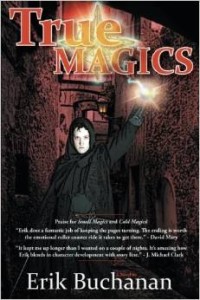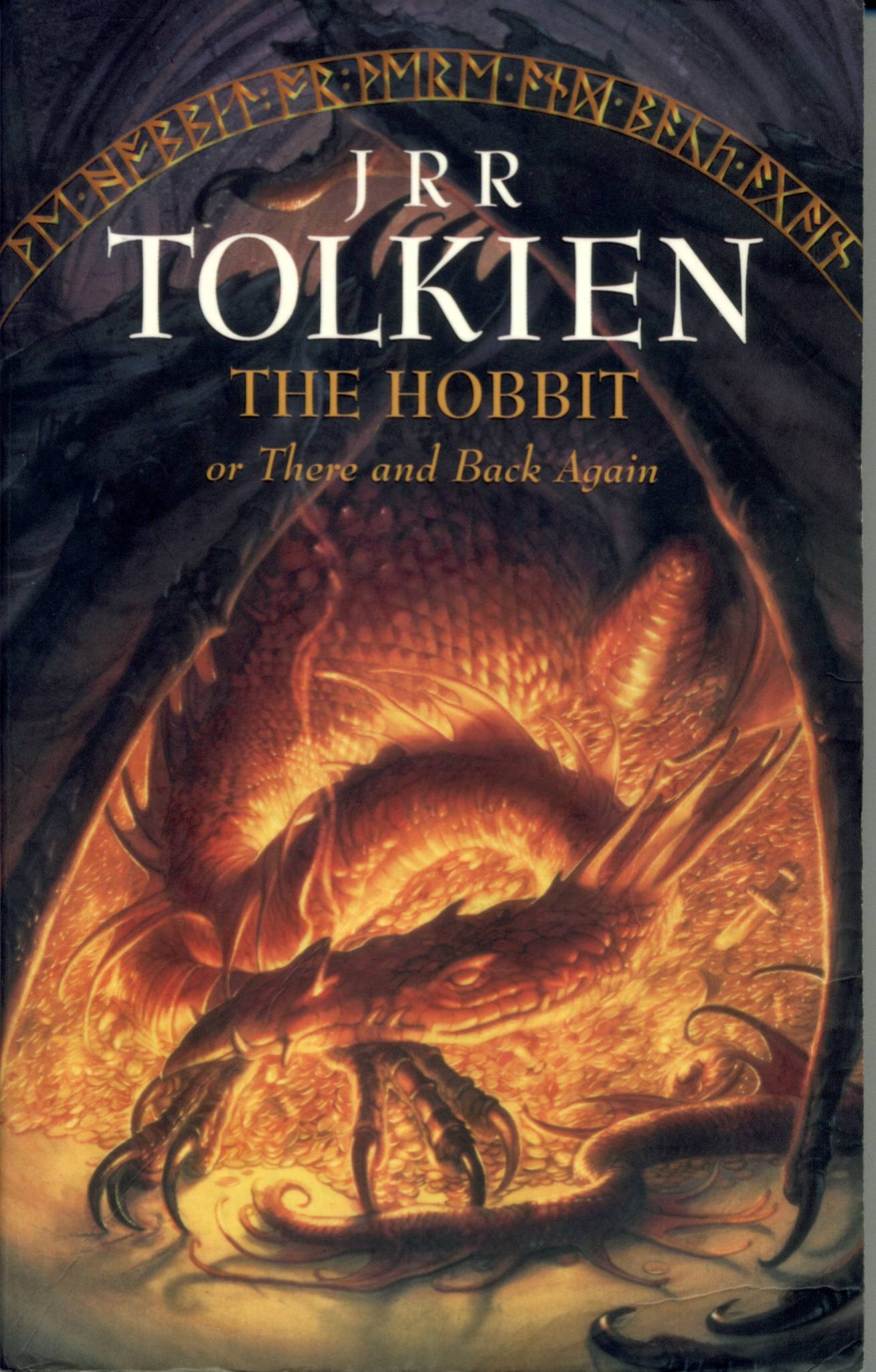This week’s Flashback Friday: Hobbits, D&D, and King.
I’m happy to have fantasy author, Erik Buchanan, here for a guest post on how The Hobbit, Dungeons & Dragons, and Stephen King influenced him as a writer.
I started reading when I was two years old. And I read a lot. I did all the usual kid things–baseball, hockey, playing with my friends–but whenever I wasn’t doing that, I could be found curled up in a patch of sunlight with a book in my hands.
Now I was born well before YA was marketing tool, so I just read everything. If it was fiction, I read it, whether it was comic books, my books, my parent’s books, or other people’s books. I learned a great deal about the written word through osmosis, and some great truths about fiction, to whit:
- There’s no way the Hardy Boys could have done all that stuff in one year.
- Bad things happen to people, but when you’re 9 years old, that really shouldn’t happen to Frodo at the end of The Two Towers.
- Herman Hesse’s Steppenwolfe makes no sense when you’re a teenager.
- Stephen King’s It takes 7 hours to read in one sitting. Don’t start 7 p.m.
- Also, never read Stephen King’s Boogieman before bed when there’s an unknown source of noise coming from somewhere in your room.
As for which books are my major influences, I’ve read so many books that isolating a few is mighty difficult.
 I do remember that the first novel I attempted to write was heavily influenced by Dungeons & Dragons, comic books, and The Hobbit. I was in grade 3, and the book was sixteen double-sided, single space hand-written in pencil pages long in my duo-tang when I stopped writing it.
I do remember that the first novel I attempted to write was heavily influenced by Dungeons & Dragons, comic books, and The Hobbit. I was in grade 3, and the book was sixteen double-sided, single space hand-written in pencil pages long in my duo-tang when I stopped writing it.
Since then, however, there are some authors that stand out:
Tolkien was my introduction to high fantasy, and he hooked me. The Hobbit remains my one of my favourite books to this day (we won’t even begin to talk about what I think of the movies). That book gave me wanderlust and the knowledge that there was something out on the horizon. It was the book that helped me realize that there were entire words to be explored out not just outside my door, but also in my imagination, and that those worlds were even more fun if I wrote them down.
Stephen King taught me how to get attention and hold it. Even at his too-high-for-words worse, he was still a better writer than many others are sober and straight. His best books have a way of digging into what is viscerally terrifying–loss of faith (priest vs. vampire in Salem’s Lot), loss of control (The Shining), and sudden changes in those we love (Pet Sematary, Cujo).
Later in life, reading Stephen King’s On Writing made me rewrite my book, Small Magics, and was probably the reason it got published.
Then there are the great Canadian writers of the 70’s and 80’s. My favourites were Farley Mowat, Margaret Atwood, and Robertson Davies (who has been described as one of Canada’s great literary curmudgeons). These folks wrote what is now called “literary” fiction. There was no fantasy in them, only occasional science fiction (The Handmaid’s Tale) and once in a while a ghost. These were books about people, and I think they, more than any fantasy, science fiction, or horror, taught me that books, at their heart, must be about people or they aren’t worth reading.
And there is one other writer, who shall not be named.
This writer (who has written many books since) wrote a book that will not be named.
And it was a bad book. It was a terrible book. It was so full of fantasy clichés that one could hardly turn a page without tripping over one. It had every single deus ex machina possible and characters so paper-thin as to be transparent. And it got published. By a real publisher.
And it was reading that book, more than any other, which set me on the road to being an author instead of just a writer.
Because I thought, “If this can get published, why can’t I?’
And shortly after, I was.
 Erik Buchanan‘s latest work, True Magics, is now out and available through Amazon or by order from better bookstores everywhere. True Magics is book III in the Thomas Flarety Stories.
Erik Buchanan‘s latest work, True Magics, is now out and available through Amazon or by order from better bookstores everywhere. True Magics is book III in the Thomas Flarety Stories.
Thomas Flarety, Captain of the Student Expeditionary Company and hero of the battle for Frostmire, thought that convincing the Academy to take Eileen as their first female student in more than 200 years would bring him trouble enough. Then stories of Thomas’s magic reached Hawksmouth.
Now, Thomas’s friends have started disappearing. The king has ordered Thomas to keep his magic hidden and to find the other magicians in the city. The Cult of the Daughter wants Thomas for one of their own. The Archbishop wants Thomas to surrender to the Inquisitors and redeem his soul, and preachers are raging in the streets against witchcraft, the Academy and the king.
With Hawksmouth falling into chaos and the Academy divided against itself, Thomas must save his friends, find the other magicians, and decide what to do with his magic before the struggle between the king and the archbishop turns into an all-out war that will destroy everyone and everything he loves.
Click here to read other Flashback Friday posts by other authors including Jean Walker, GG Silverman, and more.



raven_oak StephenKing Thanks!